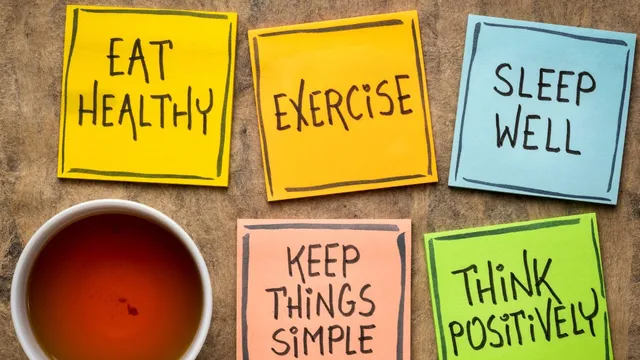- By Priyanka Munshi
- Wed, 09 Apr 2025 05:02 PM (IST)
- Source:JND
Imagine waking up feeling refreshed, full of energy, and completely free from that constant exhaustion. You’re ready to take on the world with a clear mind and a strong body. Now, think about how often we push our health aside—opting for a quick bite instead of a nutritious meal, skipping exercise because our schedules are packed, or compromising on sleep just to meet another deadline. Over time, these small compromises pile up, leaving us drained and out of sync with our own well-being. In a conversation with Jagran English, Dr. Usha Chennuru, Medical Head at Cipla Health Limited, spoke about the importance of building sustainable habits. She shared four daily practices that can significantly contribute to long-term well-being.
Wellness is about creating a lifestyle that supports lasting health and vitality—it’s more than just preventing illness. How well we age and how resilient our bodies remain against diseases are largely shaped by our everyday choices—what we eat, how we move, and the habits we build. In today’s busy world, it’s easy to overlook the little things that contribute to overall health while prioritizing work and other responsibilities. Following the recent observance of World Health Day, Dr. Chennuru offers four simple yet impactful lifestyle changes that can enhance our quality of life and pave the way for a healthier future:
Also Read: How An Intrauterine Device Affects Your Menstrual Flow: Expert Insights
Stay Hydrated The Right Way
Water is the elixir of life, yet many of us don’t drink enough of it each day. The standard recommendation is to consume at least 2 to 2.5 liters of water daily—but how many of us actually meet that target?
Proper hydration supports circulation, digestion, and temperature regulation. But staying hydrated is not just about drinking water; it also means replacing lost electrolytes, especially during the hot summer months. One of the most effective ways to do this is by using a World Health Organization (WHO)-approved Oral Rehydration Solution (ORS). This specially formulated mix of water, sugar, and electrolytes helps the body rehydrate quickly and efficiently.
Follow A Balanced Diet With Vegetables, Proteins And Carbohydrates
Vegetables are rich in essential vitamins, minerals, and fiber. They aid digestion, strengthen the immune system, and support overall health. For the best benefits, aim to eat a “rainbow” of vegetables—leafy greens for iron, orange vegetables for beta-carotene, and cruciferous options like broccoli for compounds that support cellular health. The more colorful your plate, the more nutritious your meal.
Exercise Regularly For A Stronger Body And Mind
Physical activity is vital for good health. Unfortunately, today’s sedentary lifestyles are contributing to rising inactivity levels. Regular exercise not only helps maintain a healthy weight, but also improves heart health, elevates mood, and strengthens the body. Whether it’s walking, yoga, or strength training, engaging in at least 30 minutes of moderate activity five days a week can have a transformative impact. Movement improves circulation, strengthens joints, and releases endorphins, which naturally boost mood.
Prioritize Sleep For Recovery And An Energized Mind
Sleep is often overlooked, even though it's essential for overall health. Inadequate sleep can lead to fatigue, stress, weakened immunity, and a higher risk of lifestyle-related diseases. Getting seven to eight hours of quality sleep every night supports hormonal balance, cardiovascular health, and cognitive function. Simple changes like maintaining a consistent sleep schedule, reducing screen time before bed, and creating a restful sleep environment can make a big difference.
Preventive wellness is built on consistent, small actions rather than drastic changes. Good long-term health begins with simple habits: staying hydrated, eating nutrient-rich foods, exercising regularly, and getting sufficient rest.
By taking control of our daily routines, we can shift our focus from treating illness to preventing it—creating a healthier, more vibrant future. After all, the choices we make each day shape the healthiest version of ourselves.

